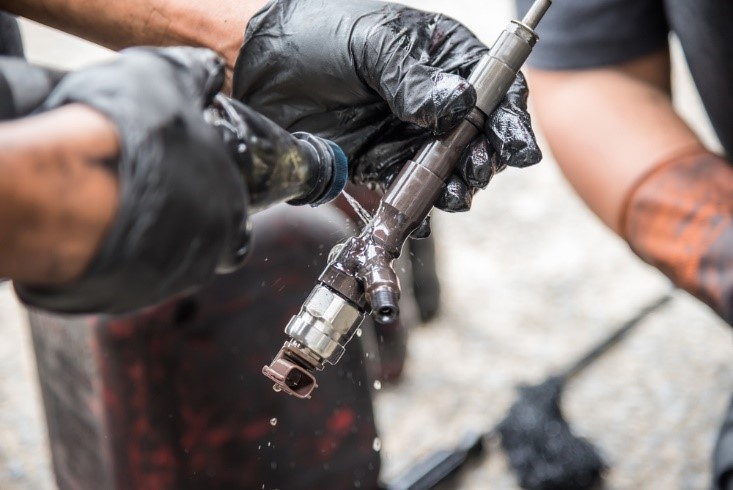If your car has been running a little rough lately – maybe it doesn’t feel as responsive – dirty fuel injectors could be to blame. Your fuel system plays a crucial role in how efficiently your engine performs, but over time, carbon buildup and debris can clog the injectors. When that happens, your car struggles to deliver the right mix of fuel and air. In this month’s blog, we’ll break down the signs that your injectors may be dirty and when it’s time to schedule a cleaning.

Why Fuel Injection Cleaning Matters
Your car’s fuel injectors are responsible for delivering the precise amount of fuel into the engine for combustion. When they get dirty, this balance is disrupted. Fuel injection cleaning removes these harmful deposits, allowing your engine to “breathe” properly again. Whether you drive a sedan, truck, or SUV, keeping your injectors clean ensures a smoother, more reliable ride.
Related: Learn more about why regular vehicle maintenance saves you money in the long run here.
Signs It’s Time for Fuel Injection Cleaning
So, how do you know when to schedule a fuel injection cleaning? Common signs include rough idling, poor gas mileage, slow starts, or even a noticeable drop in power when accelerating. Experts recommend having this service performed every 30,000 to 50,000 miles, though it can vary depending on your driving habits and fuel quality.
At Mike’s Brake & Alignment Shop, our experienced technicians can inspect your system and let you know exactly when it’s time for maintenance.

Professional Cleaning vs. DIY Solutions
While there are over-the-counter fuel additives marketed as injector cleaners, these often provide only temporary relief. Professional fuel injection cleaning uses specialized equipment to clean the injectors, intake valves, and combustion chambers. The difference is noticeable—not only in performance but also in long-term engine health. Investing in professional service prevents costly repairs later, keeping your vehicle running like new.
Related: Learn more about whether DIY maintenance or professional brake fluid service is right for you here.
Keep Your Engine Running Strong — Schedule Today!
Don’t wait until your car starts showing signs of poor performance. If you’re in Fort Worth, TX, trust the experts at Mike’s Brake & Alignment Shop to handle your vehicle with care. Call us today at (817) 834-2725 or stop by our shop to schedule your fuel injection. Let us help you get back on the road with confidence!



